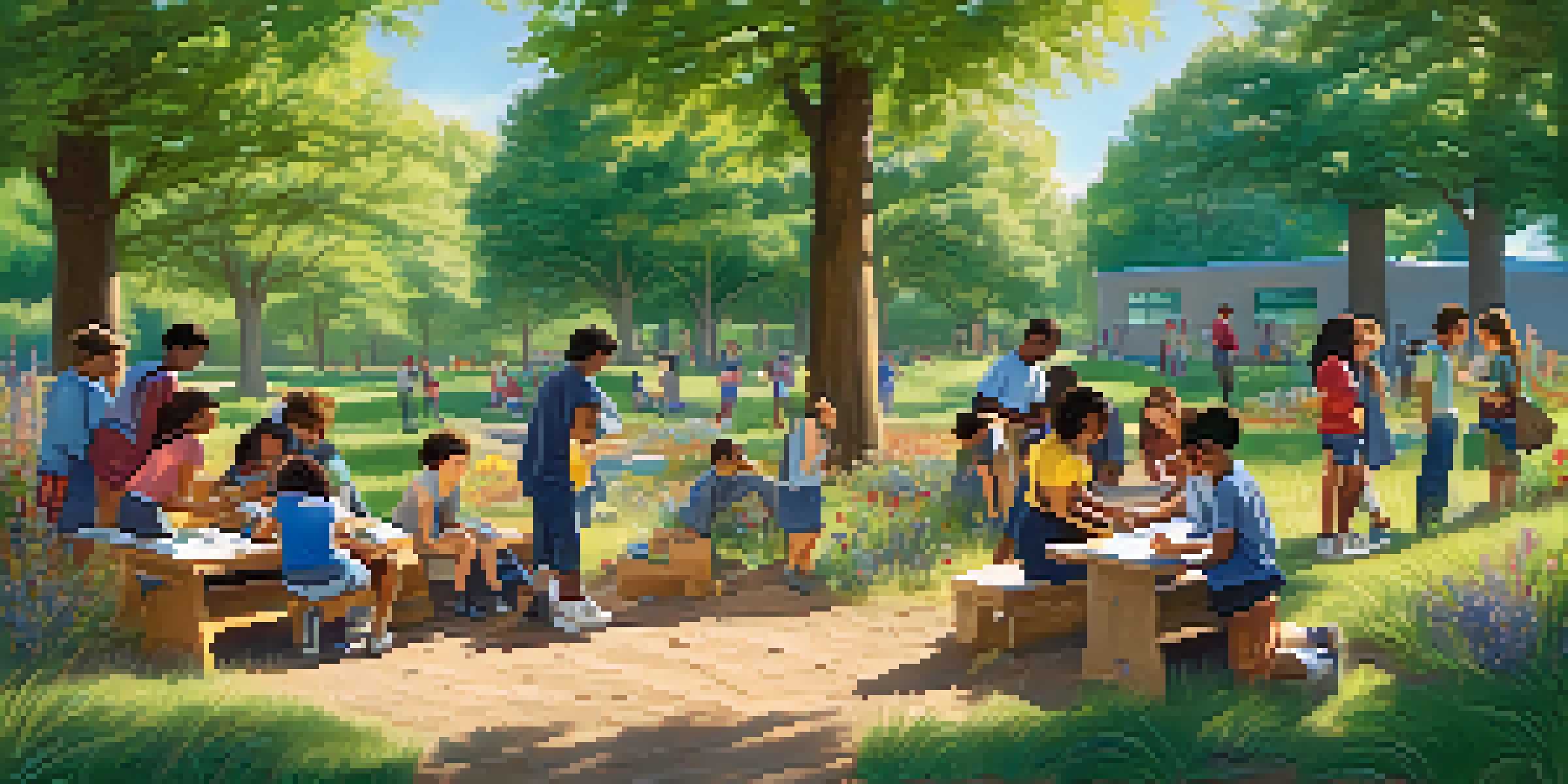Outdoor Learning: Building Global Citizens Through Nature

Understanding Outdoor Learning and Its Importance
Outdoor learning refers to educational experiences that take place outside the traditional classroom. It allows students to engage with nature, fostering a deeper connection to the environment. This type of learning encourages exploration, curiosity, and hands-on experiences that are often missing in indoor settings.
The Role of Nature in Developing Global Citizens
Nature serves as a powerful classroom for teaching global citizenship. When students interact with their environment, they begin to understand the interconnectedness of ecosystems and cultures. This awareness helps them appreciate diverse perspectives and fosters a sense of responsibility towards the planet.
Outdoor Learning Enhances Empathy
Engaging in outdoor activities fosters collaboration and understanding among students, helping them build empathy across cultural boundaries.
Building Empathy Through Outdoor Experiences
Outdoor learning can significantly enhance empathy among students. Activities such as team-building exercises or community service in natural settings encourage collaboration and understanding. When students work together to overcome challenges outdoors, they develop strong bonds that transcend cultural barriers.
Promoting Environmental Stewardship Among Youth
Engaging with nature often instills a sense of stewardship in young learners. Educational programs that emphasize conservation and sustainability encourage students to take action for the environment. As they learn about local ecosystems and their fragility, they become more invested in protecting the planet for future generations.
Nature Promotes Environmental Stewardship
Experiencing nature instills a sense of responsibility in young learners, motivating them to advocate for conservation and sustainability.
Encouraging Critical Thinking and Problem-Solving Skills
Outdoor learning environments promote critical thinking and problem-solving abilities. When faced with real-world challenges, students must think creatively and adapt their strategies. This hands-on approach not only solidifies their understanding of complex issues but also prepares them to tackle global challenges.
Fostering Collaboration and Communication Skills
Working in outdoor settings enhances students' collaboration and communication skills. Group projects, such as building shelters or conducting nature surveys, require effective dialogue and teamwork. These experiences are crucial for cultivating future leaders who can navigate diverse social landscapes.
Critical Thinking in Real-World Settings
Outdoor learning challenges students to think critically and solve problems, preparing them to tackle complex global issues.
Integrating Outdoor Learning into Education Curricula
Schools can integrate outdoor learning into their curricula through various approaches. Field trips, nature-based projects, and outdoor classrooms are effective ways to blend education with nature. By incorporating these elements, educators can inspire students to become active participants in their communities and the world.
The Lasting Impact of Outdoor Learning on Future Generations
The benefits of outdoor learning extend beyond the classroom, shaping future generations of global citizens. Students who connect with nature are more likely to advocate for environmental issues and social justice. By nurturing this connection, we can empower young individuals to become informed, compassionate leaders in an increasingly complex world.